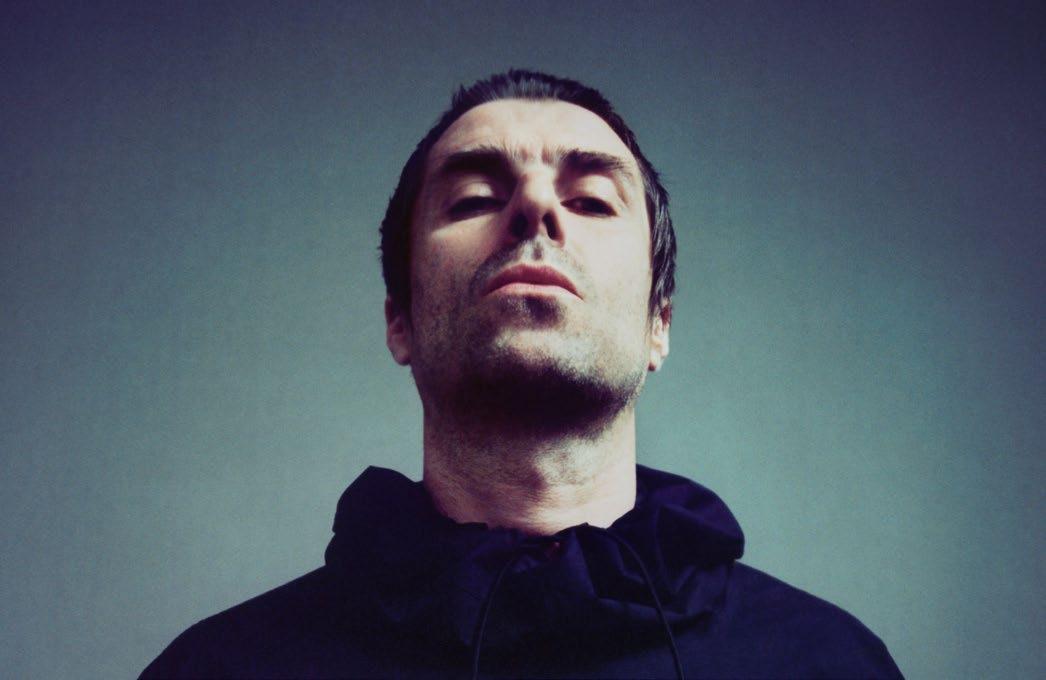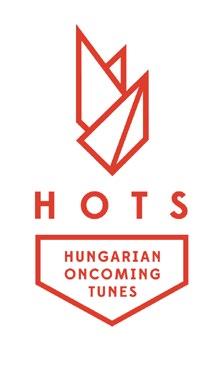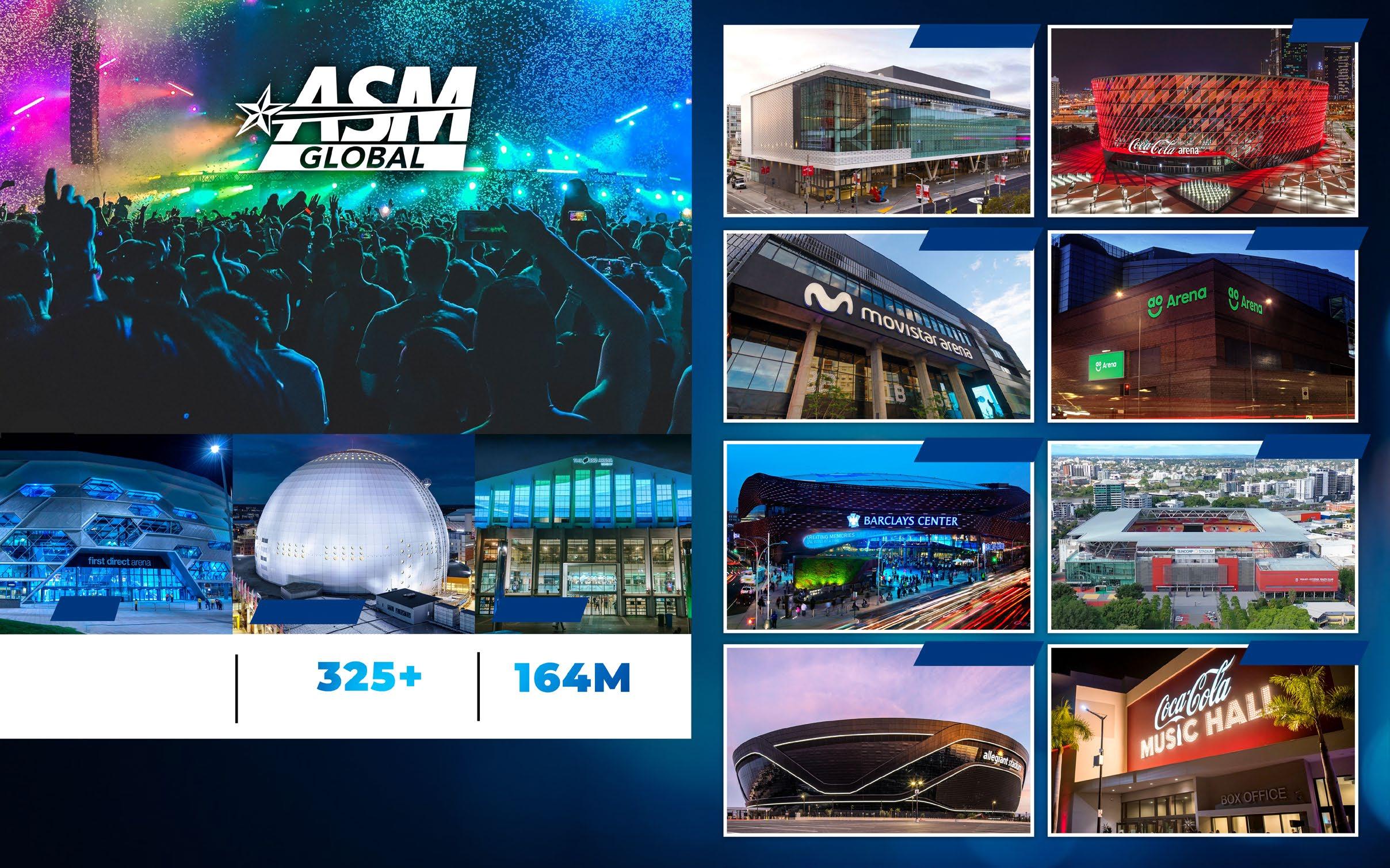
13 minute read
All You're Dreaming Of
from IQ106
by IQ Magazine
James Hanley speaks with Paradigm Agency’s Adele Slater and Alex Hardee about Liam Gallagher’s mammoth plans for 2022, the state of rock music, the prospects for live music’s recovery, challenges for emerging talent and more…
As the old saying goes, the best ideas are often the simplest. So when a 25th anniversary documentary on Oasis’s legendary 125,000cap Knebworth concerts debuted on the big screen in September, there was no better time to announce frontman Liam Gallagher’s return to the site of his biggest triumph.
Upon a wave of nostalgia and renewed excitement, the rock & roll star sold out two nights at the fabled Hertfordshire venue from 3-4 June 2022, promoted by Festival Republic, Live Nation, and SJM Concerts. Kasabian head a strong support bill also featuring Michael Kiwanuka, Fat White Family and Goat Girl, with more to be confirmed.
Days later, the singer confirmed his maiden solo UK stadium tour, which stops at Manchester’s Etihad Stadium and Hampden Park in Glasgow next summer, as well as Belsonic in Belfast’s Ormeau Park. European dates include festival slots at Rock in Rio Lisbon, Syd For Solen in Denmark, and France’s Beauregard Festival, while he will also play a support slot for Foo Fighters at Estadio Wanda Metropolitano in Madrid.
Earlier this summer, Gallagher played a free show for NHS workers at The O2 in London and completed a run of UK headline appearances at festivals including Reading and Leeds, TRNSMT, and Isle of Wight.
Since his 2017 comeback, the Britpop icon has been represented on the live scene by Paradigm’s Alex Hardee and Adele Slater. Here, the agents reveal the genesis of the Knebworth plan, Gallagher’s international ambitions, and share their hopes and fears on rock music and the resurgence of the touring sector. As you were…
IQ: When was the idea for next year’s Knebworth shows first formulated?
AH: I think that the idea might have been [Live Nation UK & Ireland chair] Denis Desmond’s, but we’re going to claim it as ours! Whoever’s it was, it’s not going to go up there with Einstein’s theory of relativity, because it’s not the most complicated thing to think, “Let’s do Knebworth shows 25 years after they actually happened, with a documentary coming.” It’s a good idea but an obvious one. But our jobs are quite simple compared to doctors and nurses. AS: With the timing of the anniversary of the film, it kind of just made sense. AH: I tell you what, the idea was simple, and we knew it would capture the imagination and be a hot event, but it took us by surprise that we could do two [nights]. We always knew we’d do one, and we had a second day on hold. At the outset, we thought that the second show was an outside chance. But defi-
nitely by the announcement date – and the reaction online – we got ready, very quickly, to go for the second show.
What capacity are the Knebworth gigs?
AH: They’re 80,000, but we’re hoping that people think they're 125,000 like the original gigs.
Did you have the option of scaling all the way up to 125k?
AH: Well, I wasn’t at the original gig, but lots of people involved were. AS: I was. AH: And even though, in hindsight, people say it was the greatest gig they’ve ever been to, there were massive queues for toilets and it’s a hard site to get into. AS: The structure didn’t take it very well, it was absolute chaos. The road network around Knebworth is literally tiny little country roads, so to get another 45,000 people in would be a nightmare. AH: Also, we’re very mindful now that 25 years ago, you didn’t have social media. If you don’t get things right nowadays, it’s everywhere straightaway. So we’re mindful that we want to give a good customer experience. Twenty-five years ago, different things were acceptable.
What persuaded you to announce the Knebworth shows prior to the other stadium dates?
AH: We discussed it back and forth, but we just thought that Knebworth was the important thing to blow out, and we just wanted to concentrate on that. We didn’t want to dilute the announcement of Knebworth, we wanted to blow that out and then launch the other stadiums off the back of that. The other stadiums are going to sell out, but we wanted the statement of selling out two Knebworths [first]. To do the same as what he did in Oasis, albeit with not as many tickets because of the infrastructure problems we talked through previously, was a massive statement, and it resonated throughout the industry. We did a mechanism afterwards so that people in Manchester and Glasgow could change their tickets around if they wanted to, and there was a bit of uptake on that. Not much, though, because I think most people wanted to go to Knebworth.
A few months on, how do you reflect on his special show for NHS workers at The O2?
AS: It was just a moment in time that kind of captured everyone coming back to the live world. It was one of the first shows back into the arena as well, so it was quite weird, but it was really good for everyone to get together.
What was the wider strategy behind Liam’s UK festival headline run in the summer?
AH: They were booked two years ago, so they were flipped [from 2020 to 2021]. The Knebworth announcement was initially going to be off the back of playing Reading and Leeds,
Alex Hardee | Paradigm Agency
and TRNSMT. We wanted to keep it as close to those gigs and the documentary as possible because that’s when we knew the maximum heat would be. But the record label wanted to wait until [Gallagher’s forthcoming third solo LP] was ready, so we came to a compromise and got a pre-order mechanism in place without the finished artwork, which was the right decision, and we sold a lot of album pre-orders. Selling these gigs is all about the timing, as you could see in the summer, when the roadmap for coming out of Covid was announced. If you announced at that point, you were selling 30-40% [more tickets], it was a frenzy. And we knew that the right time to announce these shows was before everyone else went up with their shows and also after the documentary had just landed. That got everyone excited, and then we announced Knebworth – that was the skill in getting that show sold out.
And what’s the audience demographic?
AH: It’s from 16 to 60, isn’t it? AS: If you look at the Reading and Leeds crowd, that was all kids.
Last question on Liam, what do his prospects look like outside of the UK?
AS: We’ve flipped a load of stuff from other summers that are happening June time [next year], so we’re hoping everything will be back to normal by then. But we're not going to be out there until the summer, so we’ve got time yet. AH: In some markets now, he’s bigger than Oasis were. He’s gone from club-level to arena-level now in most markets, and from headliner at secondary festivals to second on the bill at major festivals. And it’s growing – Knebworth’s had an effect. We don’t actually know what we can do bigger than two Knebworths next, apart from reforming Oasis. That’s the brain-teaser, but we can build his international career. Yes, he sings Oasis songs, but he’s producing new music that's relevant and he’s charting and reacting well for a rock act.
Where does rock music currently stand in the grand scheme of things?
AH: What do they say? Rock music is not dead, it just smells funny. It’s not going to dominate the charts anymore, but it can still dominate live. Heavy metal’s never dominated the charts but Iron Maiden are consistently selling live tickets. People want to see it, it’s just there’s not enough people listening to it on streaming to make it in the charts. Someone’s got to work out how to make the charts relevant again, because four-year-olds are influencing them by shouting at their Alexas at the moment. AS: There is always going to be an appetite for rock music and guitar bands, that’s never going to go away, I don’t think, it’s just swings and roundabouts to see these trends.
How are you both feeling about 2022? What are your hopes and fears for the live business?
AH: Well, it’s back to normal in the UK. We think Europe should get back to normal from March/April. A long time ago, we said to leave all our tours in Europe to April/May and miss the winter out, and that probably was the right move. We hardly have anything going out in January and February apart from one-offs, but no European touring. The summer festivals should all be back. Asia and Australia, we’re hoping will be back in Q3/Q4. We don’t book in America, but that seems pretty much back to normal. So in terms of the business, it feels like we're getting back, and the worst is behind us. AS: Yeah, totally. Fingers crossed, it feels like it’s going in the right direction now, so by next summer it should be good.
Is the public demand there to support the volume of concerts happening?
AH: Don’t know yet. I mean, the middle is being squeezed. Hot things are selling, and some of the new things are selling, but the middle stuff is proving problematic. Stuff that's been around a bit and maybe not having reactive records, that's where the squeeze is. That’s always been where the squeeze is, it’s just more accentuated at the moment because there is so much stuff out there. There is a lot of touring going into next year so there’ll be a few misses, I think.
As far as ’22 and beyond, how much further ahead are you in terms of forward planning than you would have been pre-pandemic?
AH: We’re definitely further ahead of booking ’22 than we would be at this point in a normal year because most of ’22 is all booked. Everyone has announced and gone on sale further in advance so there are a lot less slots left for festivals than there would normally be at this stage. And the tours are all booked, all avails were held, so there isn’t much left to do for ’22 now, so ’23 will start. I don't think they’re going to necessarily start looking at ’23 festivals that early, but they’re starting to talk about the headliners.
What does that mean for emerging acts – are they going to be squeezed out?
AH: There’s a myth that if you go on at a festival, you’re going to play in front of someone. You’re not going to play in front of someone unless people want to see you. It's not like the old days where people would just wander around, everyone knows everything [now]. So for newer acts, it probably takes a year before you get to a point where you’re ready to play festivals. You need to build your streaming, your tickets, and your worth up before you get on them. You shouldn't be obsessed by playing a festival for the sake of it; you've got to be obsessed with playing the festival at the right time, when it's going to enhance your career. AS: It looks good on paper and for the PR, but the reality of it is if you’re playing in front of ten people, it's the wrong time.
Any other business?
AH: I think you should mention that Adele does all the hard work and I take the glory.

ДEVA
eva is a solo project by 20-year-old Budapest-based Dorina Takács that recently saw her nominated for next year’s Music Moves Europe Talent Awards. Music has always played a major role in Дeva’s life, but in 2019, she felt it was time to take matters into her own hands and decided to do everything herself. As a result, she writes, produces, and performs her own tracks and designs her own artwork. Her highly anticipated debut album will be out this winter on Move Gently Records.
During the pandemic, she took time to focus on her inner self. She says, “Thanks to the isolation, I realised that I am the person who makes the decisions for my happiness. I made a lot of music and learned how to energise myself for the concerts.”
Talking of live, she continues, “Last year, I had the chance to perform at the Kino Šiška venue in Ljubljana. It was nice to see that people speaking other languages could find my music interesting. This summer, I had my first festival season including events like Kolorádó, Bánkitó, and Campus Festival. In 2022, I am invited to Eurosonic festival in Groningen. That is such a great honour for me.”
As for her home nation, Дeva says last year’s restrictions in Hungary made live music difficult. “Over the last year it changed a bit,” she tells IQ. “For those who vaccinated themselves, 2021’s festival season was almost the same experience as it used to be, except for bigger events like Sziget, which were postponed. In my opinion, the fans and [artists] are all getting used to the fact that sometimes it’s impossible to experience live music.”
Nevertheless, she is optimistic about the year ahead. “In 2022, I’m gonna release my first album, Csillag. I hope it will make a deep connection with people all around the world and spread those energies I put into it. The songs are filled with a lot of Hungarian/Transylvanian folk music elements. I hope they’ll grab the listener’s attention.”
Дeva is planning to host her album launch party at Eurosonic in January, and will also be performing a release show at Trafó in Bupadest on 29 January.

To vote for Дeva in the Music Moves Europe Awards, click here.
BUENOS AIRES











BROOKLYN



















